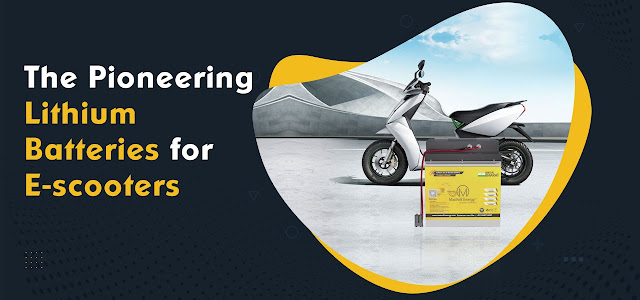Which Battery Is Better for EVs: Lithium or Lithium Ion?
The distinction between lithium and lithium-ion batteries is that lithium batteries are primary cells while lithium-ion batteries are secondary cells. The word "primary cell" refers to non-rechargeable cells. Lithium-Ion batteries, on the other hand, are built using secondary cells. It implies that they can be recharged and used repeatedly. Maxvolt Energy is a Lithium Ion Battery manufacturer in India.
A primary lithium battery is a contemporary, high-tech battery that uses lithium metal as the active ingredient in the anode and has a wide range of potential uses.
A situation in which lithium-ion batteries are more advantageous necessitates frequent recharges. Your cell phone's lithium-ion battery lasts for about a day, but you can recharge it every day for years without experiencing too much function loss.
Comparing Lithium and Lithium-Ion Batteries
Lithium batteries are difficult and dangerous to recharge; this challenge prompted the development of lithium-ion batteries. They can be charged multiple times before they become inactive. Lithium batteries are not rechargeable but have a higher capacity than lithium-ion batteries. They contain more energy than Li-ion batteries. Unlike lithium-ion batteries, which use a variety of materials to produce their anode, lithium batteries use lithium metal as their anode. Lithium-ion batteries have a shelf life of three to four years, after which they are useless.
Lithium Battery Applications
A lithium battery can replace an alkaline battery in many gadgets, including clocks and cameras. Although more expensive, lithium cells have a longer life cycle, reducing the need for battery replacement. However, before employing lithium cells as a drop-in replacement in devices that ordinarily use regular zinc cells, consideration must be given to the greater voltage created by the lithium batteries. Unlike toys, the lithium battery may surpass the device.
Lithium-ion battery applications
Consumer devices and electric vehicles use the vast majority of commercial Li-ion batteries. Among these devices are:
Portable electronics: Mobile phones and smartphones, laptops and tablets, digital cameras and camcorders, handheld game consoles, and torches are all examples of portable electronics.
Powerful equipment: Li-ion batteries are used in multiple types of equipment, including car jump starts, cordless drills, sanders, saws, and garden equipment such as whipper-snippers and hedge trimmers.
Vehicles powered by electricity: Electric automobiles, hybrid automobiles, electric motorbikes and scooters, electric bicycles, personal transporters, and advanced electric wheelchairs all use it.
Lithium and lithium-ion battery development trends
Compact consumer batteries still fall under this category, but there is an increasing trend toward adopting rechargeable batteries since they are more cost-effective and efficient. For a long time, the science and technology of lithium batteries dominated the field of sophisticated power sources. Today's lithium-ion cells have very diverse performance requirements based on users' demands.
Both lithium and lithium-ion batteries are practical and have a significant impact on the daily lives of most people. Modern society would be impossible without them, from remote-control toys to life-saving medical devices. It is possible to charge an electrical circuit that is compatible with either of these battery types wherever you are since they both offer a portable power source.
Conclusion
You now know the advantages and differences between lithium and lithium-ion batteries. In our opinion, the best batteries for EVs are lithium-ion batteries. Additionally, they are more beneficial in the long run and have a superior life cycle.
Maxvolt Energy, a manufacturer of lithium-ion batteries, has more information on EV batteries.
.jpg)
.jpg)


Comments
Post a Comment